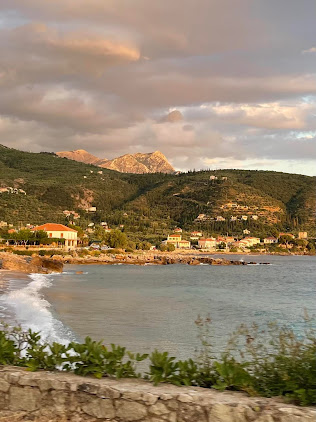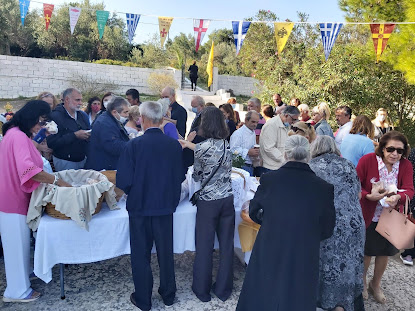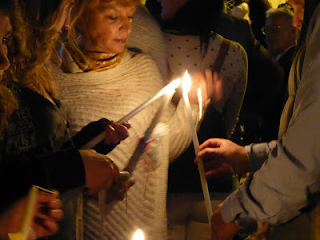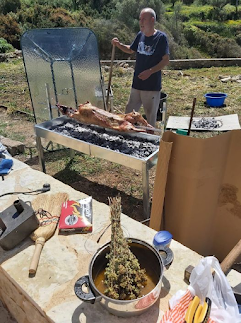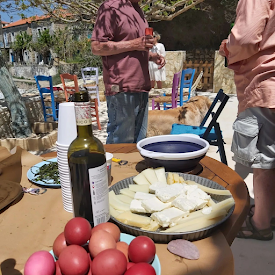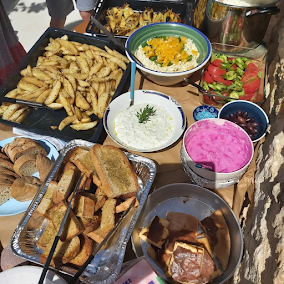The gathering on the morning of January 6th in our small Greek fishing village was much the same as it is every year on that date.
And maybe that is why I think it is one of my very favorite celebration days in this expat life of ours.
 |
| The Gathering 2025 |
The minute the bells rang out from our village church, the excitement began building among those of us gathered together. Even though we knew that a processional would be arriving from the church and what would happen at the harbor once it got there, the anticipation rippled through the crowd just as it has every year.
 |
| Singing an Epiphany Kalanda - a tradition |
We were gathered for the Blessing of the Waters; the day of the Epiphany, or Theophany (both words stem from the Greek words for 'revelation' or 'revelation of God.) Some of you may know the day as Three Kings Day. It is the festival day celebrating the coming of the Magi as the first manifestation of Jesus Christ as God and it also celebrates Christ's baptism in the Jordan River.
 |
| Traditions and celebrations date back decades in our village |
Celebrations such as the one in our village take place in Greek communities around the world and they have taken place for centuries. Archaeological evidence shows that celebrations of the baptism were celebrated by Greek speaking parts of the Roman Empire as far back as 200 AD. And even though we don't know enough Greek to understand what is being said in the ceremony, there is something about helping carry on such traditions and celebrations that makes the day extra special.
We couldn't help pondering how similar today's ceremony was to those held decades ago in our village.
 |
| To the Cross they swam |
We'd arrived early to join friends for breakfast at one of the harborside restaurants. Our table at the side of the road gave us a spot for viewing the religious ceremony that would take place as well as a strategic spot to greet friends and neighbors as they began arriving for the midmorning event. Greeks, expats, residents, visitors, young and old gathered to watch the brief but beautiful ceremony.
 |
| A toss of the Cross |
Our Pappas Panayotis blessed the cross and dipped it twice into the harbor. The third toss was out into the middle of the harbor. As it landed, a group of swimsuit-clad faithful dove in to retrieve it.
 |
| The Cross is returned |
A young girl - from a much larger group of swimmers than we've had in the past -- retrieved the cross this year. Applause rang out as she raised it out of the water.
 |
| The end of the holiday season comes to the village |
This day also marks an unofficial end to the Christmas and New Year's holiday. Soon the seasonal decorations will come down and the focus will turn to spring, the reopening of stores and the influx of tourists.
But for today, we gathered as a village at the water, just as we will next year and hopefully for many more years to come.
We hope the New Year has started off well for you and yours. May your year be filled with travels and traditions. Thanks for being with us and until next time, safe travels ~












_LI.jpg)


